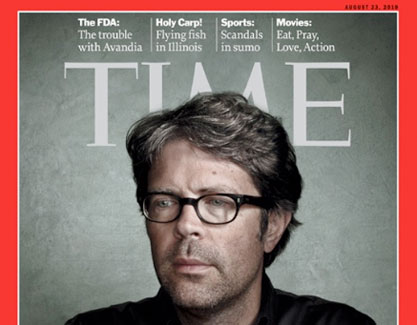Over the last few weeks, somewhere between watching a bit of Food Inc, as part of research for a documentary (I couldn´t stomach 10 minutes of it…), reading about the latest cutbacks to personal freedom compliments of the Obama administration, and watching Chris Hodges’ speech on the empire´s severe decline; somewhere along the line, I came to be afraid of America.
I was on the verge of being hired to shoot this documentary, which involved travelling over every state in mainland America in SUVs, and I started imagining what I would be eating in little towns where access to food that didn´t come from the places I had seen on Food Inc might be very limited at best.
I have always had this idea that it would be very ironic for a Uruguayan to die in an earthquake, or in a war, or being poisoned by bad food, since we don´t have earthquakes or wars, and the bulk of our food would still be called “organic” in America.
Not that I am really afraid of dying, if I go back to America; I have to say I had a pretty good time in Miami, NY and LA last June, but one thing I am sure of is don´t wanna spend more than a month or two there at a time, and I would certainly never want to move there, let alone raise a family in that increasingly rarefied environment of the bushy Obama´s former land of hope, freedom, and a long line of high-sounding, long-forgotten etceteras.
Another thing that has lately made me think about America was Jonathan Franzen´s novel “Freedom.” In a way, this is a hopeful book, about the people, yet totally hopeless, about the system. But the system is created, nurtured and maintained by the people so, in a way, it might also be read as a wake up call.
On a different level, Freedom by Jonathan Franzen is the most powerful book I´ve read about marriage. Franzen´s prose is so delicious, it speaks to the present, yet it is also innovative in its actuality. I remember many perfect phrases like the woman with the “milfy smile,” or the description of the perfectly designed streets of DC, which made a character feel that he was entering a labyrinth for rats, where he was merely a pawn of power. Freedom is abundant in this kind of words and ideas that evoke a multitude of memories and emotions, and linger with you long after you´ve turned the last page.

The characters are tremendously powerful, especially the amazing Patty; a high school basketball player, the daughter of progressive parents too busy with their causes to pay much attention to her, who marries Walter Berglund, a man who dreams of saving the world, but ends up being caught in a maze of corporations and higher economic and political interests.
The view Franzen presents of the middle classes, the corporate world and American politics seem to be about the most honest portrayals of these things in the 2000s I have ever come across. I believe his book will be remembered for many years to come, as an accurate, heart-warming and yet disheartening portrayal of a generation, actually a couple of generations.
Franzen combines amazing powers of observation with a perfect sense of plot and character development and a blessed gift for words. He reminds me of Graham Swift a little, in the scope of what he tried to achieve and the success with which he did, and in how grateful the English language must be for his use of it.
In a way, reading FREEDOM didn´t actually feed the impending-doom side of things, when it comes to my views of America; if this was a US best seller, if millions of readers in America could truly get this book, there might still hope for the future of the decadent (former) empire.